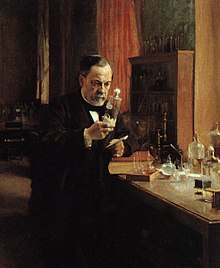Jeanne d'Arc (Joan of Arc) was born in the little village of Domremy on January 6, around the year 1412. She had four siblings and was extremely committed to God. She was a national heroine of France who became a saint of the Roman Catholic Church. Simply a peasant girl, she saved France from defeat in one of the mournful periods of the Hundred Years' War with Great Britain. Her first great quest was to lead a French army against the English who destructed the city of Orleans. Because of the success, she is often known as the Maid of Orleans in honor.

Born a strong and healthy child, she grew up Catholic because of her deeply religious mother. By the age of 13, Joan began hearing the "voices of saints" as she believed. These voices told her to go to the King of France and help drive out the English. At about 17, she left to fulfill her mission. King Charles VII realized Joan's strange powers and by then, he was so desperate, he was willing to listen to the young girl who claimed to hear the voices of saints. Finally agreeing to give her a small army and a suit of armor, Joan set out in April of 1429 to rescue Orleans from the English. By the end of the battle of Orleans, 114 were dead and 40 were captured in her favor. During the battle, she was shot with an arrow. She modestly pulled it out and continued to lead.


In September 1429, Joan was wounded in a minor battle near Paris. In May 1430, the English captured her at Compiegne. The English were determined to not give her up to the French, although important prisoners could not bring high ransoms.
Seen as an "agent of the devil" by the English, Joan was imprisoned and tried her on charges of witchcraft and heresy. Despite the accusations and bullying, she insisted repeatedly that her visions and voices had come from God. But it was no use, a French clergy, sympathetic to the English sentenced her to death. Courageously, she was burned in front of a large crowd in Rouen on May 30, 1431. Her brave death led many to believe they had witnessed the martyrdom of a saint. Because of her charges, she was not given a Christian burial and her ashes were thrown into the Seine River.
In 1455, Joan's family asked for a new trial to reconsider the charges against Joan. Pope Callistus III granted a hearing. In 1456, the pope pronounced Joan innocent. In 1909, Pope Pius X beatified her. Beatification is a preliminary step towards sainthood in the Roman Catholic Church. Pope Benedict XV declared Joan of Arc a saint in 1920. Her feast day, the day of her death, is May 30.

Questions:
a. What was it like to live in France when your person did? What was going on socially, culturally, politically, etc.? How was your person affected by their time period and how did they in turn affect everyone else?
The war with England was going on at the time continuously. Socially, the Renaissance was just beginning in Italy and it continued throughout the 17th century. It was a period of art and ball gowns and wearing long dresses. However, she "cross dressed" and was seen as an outcast because she didn't wear dresses or stay at home. She was in the war and fighting and to the culture at the time, it was wrong. She affected everyone because she stood up for what she believed in and wasn't afraid to show it. She helped France get out of the "dark age".
b. Name a few ways that your person changed history. How did his or her thoughts and actions affect the way other people thought fifty or one hundred years later? Elaborate.
Joan of Arc chose to follow "the voices in her head", she really believed and she followed what she thought was right by going to the king.
c. Using the French skills that you have, write one paragraph from your person's perspective:
























 Marie
Marie ![[Louis_Charles_of_France6.jpg]](https://blogger.googleusercontent.com/img/b/R29vZ2xl/AVvXsEgYhmrGiwkl-zdRIRPpZ2Pqg_z9uix3PlDETS_DjfyyF1yvnPohCNmlGXumpfHk_yTk5J4q8lxdEPQrd56qSMZ40i_lsCty_0glifxwEvNGhdqhxB2Vm-1__SMkC1RQ4m0gZXp0gz3NN22X/s1600/Louis_Charles_of_France6.jpg)

 Marie Sophie Helen Beatrice
Marie Sophie Helen Beatrice